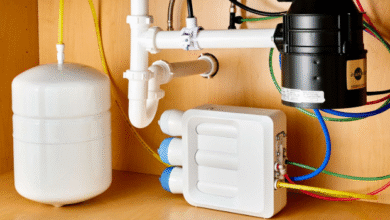How Seasonal Shifts Expose Weak Points in Your HVAC System

Ever notice your home feels unevenly warm in summer or unusually chilly in winter? That’s often your HVAC system quietly signaling trouble. When seasons change, your heating and cooling systems are put to the test, and weak spots that were hidden during mild weather start to show.
Understanding these seasonal stresses can help you prevent unexpected breakdowns and save money on costly repairs. In this article, we’ll explore the common issues your system faces and how to address them before they escalate.
Why Seasonal Changes Impact HVAC Systems
Seasonal swings don’t just make your home uncomfortable—they put serious stress on your HVAC system. In this section, we’ll explain how temperature and humidity changes expose hidden weaknesses.
Temperature Extremes and System Stress
During the summer, air conditioners have to work harder to keep your home cool. Heat waves push compressors and fans to their limits, often revealing parts that are already worn or inefficient.
In winter, furnaces face a different challenge: maintaining warmth when temperatures drop suddenly. Systems that haven’t been properly maintained may struggle, leading to uneven heating, higher energy bills, or sudden failures.
Watching for signs like strange noises, inconsistent room temperatures, or rising energy costs can help you identify these issues early before they become major problems.
See also: Designing Kitchens That Balance Functionality and Style
Humidity Fluctuations and Indoor Air Quality
Humidity is another hidden stressor on HVAC systems. High summer humidity can overload your air conditioner, while dry winter air may cause duct leaks or clogged filters.
Humidity levels fluctuate with the seasons, affecting both comfort and system performance. High summer humidity can overburden your air conditioner, while low winter humidity can dry out components and reduce efficiency. Seasonal changes also influence home energy performance and indoor air quality standards.
Common Weak Points Revealed by Seasonal Shifts
As seasons change, weak areas in your HVAC system often become apparent. Here’s a closer look at the most common problem spots.
Aging Components and Wear
Motors, belts, and compressors naturally degrade over time. Seasonal temperature swings accelerate this wear, causing components to fail faster than expected.
Even small issues like a slightly loose belt or a motor running hotter than usual can signal a larger problem. Regular inspections and maintenance help catch these early, preventing unexpected breakdowns and costly replacements.
Airflow and Duct Issues
Ductwork problems often become noticeable during extreme temperatures. Leaks or blockages can cause some rooms to feel hotter or colder than others, while increasing energy consumption.
Addressing these issues promptly ensures better airflow, more consistent temperatures, and improved energy efficiency. Simple fixes like sealing leaks or cleaning vents can make a huge difference.
Thermostat and Control Failures
Thermostats are usually reliable, but they’re not immune to seasonal stress. Sudden temperature changes can reveal calibration errors or system misreadings.
When a thermostat is inaccurate, your HVAC works harder than necessary, driving up energy bills and putting unnecessary strain on the system. Checking your controls regularly can prevent these problems from escalating.
Preventative Steps to Strengthen Your HVAC System
Preventing seasonal problems is far easier than fixing them after they occur. Here’s how to keep your system in top shape.
Regular Maintenance Tips
Seasonal inspections, cleaning coils, and replacing filters are essential. These small actions keep your system running efficiently and reduce the risk of unexpected failures.
If you live in Cobourg and want to ensure your system handles seasonal changes efficiently, scheduling professional maintenance with HVAC services in Cobourg can help catch minor issues before they become costly problems.
Preparing for Extreme Seasons
Proactive preparation helps your system survive temperature extremes. In winter, check your furnace, inspect insulation, and seal drafts to minimize strain.
In summer, clean vents, test your air conditioner, and confirm proper airflow throughout the house. Taking these steps before peak seasons reduces stress on the system, lowers energy bills, and keeps your home comfortable no matter the weather.
Final Words
Seasonal changes are more than a comfort issue—they test your HVAC system’s limits. From temperature extremes to fluctuating humidity, these shifts reveal hidden weaknesses that can lead to expensive repairs if ignored.
By paying attention to warning signs, scheduling regular maintenance, and preparing for seasonal changes, you can extend your system’s life, improve efficiency, and maintain a comfortable home all year. Proactive care is the key to avoiding costly breakdowns and staying comfortable no matter the season.




